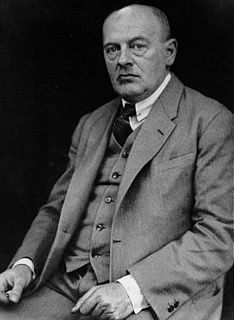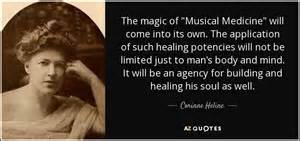Top 213 Corresponding Quotes & Sayings - Page 4
Explore popular Corresponding quotes.
Last updated on November 12, 2024.
Humanity is looking for a new story. The one it has embraced since the Renaissance is no longer viable. Despite all of its positive contributions to modern life, three hundred years of scientific-technological development has left our civilization in an untenable position-at odds with its natural environment and ultimately its own deeper, collective, soul. Only a global shift in fundamental perceptions, values, and corresponding actions will allow human-kind to resume an evolutionary pat in alignment with nature and the larger cosmos.
When an individual passes from one period of life to another a time comes when he cannot go on in senseless activity and excitement as before, but has to understand that although he has out-grown what before used to direct him, this does not mean that he must live without any reasonable guidance, but rather that he must formulate for himself an understanding of life corresponding to his age, and having elucidated it must be guided by it. And in the same way a similar time must come in the growth and development of humanity.
Under the Barack Obama rules, if you wanted to help the military, if you wanted a pay raise for the soldiers, if you wanted to buy new airplanes and new ships and more munitions, a dollar for that, you had to have a dollar domestic spending. We just broke that parity. That's the biggest victory we could have had: $25 billion year over year for our military, to begin to rebuild our military, without that kind of corresponding increase in domestic discretionary spending.
It is unfortunately none too well understood that, just as the State has no money of its own, so it has no power of its own. All the power it has is what society gives it, plus what it confiscates from time to time on one pretext or another, there is no other source from which State power can be drawn. Therefore every assumption of State power, whether by gift or seizure leaves society with so much less power; there is never, nor can be, any strengthening of State power without a corresponding and roughly equivalent depletion of social power.
THE NINETEENTH CENTURY SPREAD OF CHRISTIANITY WAS DUE PRIMARILY TO A NEW BURST OF RELIGIOUS LIFE EMANATING FROM THE CHRISTIAN IMPULSE. . . . NEVER IN ANY CORRESPONDING LENGTH OF TIME HAD THE CHRISTIAN IMPULSE GIVEN RISE TO SO MANY NEW MOVEMENTS. NEVER HAD IT HAD QUITE SO GREAT AN EFFECT UPON WESTERN EUROPEAN PEOPLES. IT WAS FROM THIS ABOUNDING VIGOR THAT THERE ISSUED THE MISSIONARY ENTERPRISE WHICH DURING THE NINETEENTH CENTURY SO AUGMENTED THE NUMERICAL STRENGTH AND THE INFLUENCE OF CHRISTIANITY.
How could a readiness for war in time of peace be safely prohibited, unless we could prohibit, in like manner, the preparations and establishments of every hostile nation? The means of security can only be regulated by the means and the danger of attack. They will, in fact, be ever determined by these rules, and by no others . . . . If one nation maintains constantly a disciplined army, ready for service of ambition or revenge, it obliges the most pacific nations who may be within the reach of its enterprises to take corresponding precautions.
Another response to racism has been the establishment of unlearning racism workshops, which are often led by white women. These workshops are important, yet they tend to focus primarily on cathartic individual psychological personal prejudice without stressing the need for corresponding change in political commitment and action. A woman who attends an unlearning racism workshop and learns to acknowledge that she is racist is no less a threat than one who does not. Acknowledgment of racism is significant when it leads to transformation.
We [with Shindzo Abe] should understand that the results of that terrible tragedy of the 20th century, namely World War II, are enshrined in corresponding international documents, and finding a way to settle all disputes without destroying the entire foundation of international law that evolved as a result of World War II is a highly delicate task. Therefore, I would like to reiterate that we cannot second-guess the course, let alone the outcome of our negotiations.
Every man that ever lived craved perfect happiness, the detective poignantly reflected. But how can we have it when we know we’re going to die? Each joy was clouded by the knowledge it would end. And so nature had implanted in us a desire for something unattainable? No. It couldn’t be. It makes no sense. Every other striving implanted by nature had a corresponding object that wasn’t a phantom. Why this exception? the detective reasoned. It was nature making hunger when there wasn’t any food. We continue. We go on. Thus death proved life.
When Catholicism goes bad it becomes the world-old, world-wide religio of amulets and holy places and priestcraft. Protestantism,in its corresponding decay, becomes a vague mist of ethical platitudes. Catholicism is accused of being too much like all the other religions; Protestantism of being insufficiently like a religion at all. Hence Plato, with his transcendent Forms, is the doctor of Protestants; Aristotle, with his immanent Forms, the doctor of Catholics.
The darkness of racial injustice will be dispelled only by the light of forgiving love. For more that three centuries American Negroes have been frustrated by day and bewilderment by night by unbearable injustice, and burdened with the ugly weight of discrimination. Forced to live with these shameful conditions, we are tempted to become bitter and retaliate with a corresponding hate. But if this happens, the new order we seek will be little more than a duplicate of the old order. We must in strength and humility meet hate with love.
Tools arm the man. One can well say that man is capable of bringing forth a world; he lacks only the necessary apparatus, the corresponding armature of his sensory tools. The beginning is there. Thus the principle of a warship lies in the idea of the shipbuilder, who is able to incorporate this thought by making himself into a gigantic machine, as it were, through a mass of men and appropriate tools and materials. Thus the idea of a moment often required monstrous organs, monstrous masses of materials, and man is therefore a potential, if not an actual creator.
As you are aware, no perceptions obtained by the senses are merely sensations impressed on our nervous systems. A peculiar intellectual activity is required to pass from a nervous sensation to the conception of an external object, which the sensation has aroused. The sensations of our nerves of sense are mere symbols indicating certain external objects, and it is usually only after considerable practice that we acquire the power of drawing correct conclusions from our sensations respecting the corresponding objects.
Substantial progress was made in spreading our foreign trade to other areas. Our total trade with Northwest Europe in the first 8 months of last year was 42.3 per cent above the corresponding period the year previous, and our total trade with Asia was up 13.5 per cent. For the first time since 1919, the United States in the first 8 months of 1956 accounted for less than 60 percent of our total trade.
It [knowledge] is clearly related to information, which we can now measure; and an economist especially is tempted to regard knowledge as a kind of capital structure, corresponding to information as an income flow. Knowledge, that is to say, is some kind of improbable structure or stock made up essentially of patterns - that is, improbable arrangements, and the more improbable the arrangements, we might suppose, the more knowledge there is.
When you are dancing with your partner, for that two and a half minutes, you are in love with each other. You're
corresponding with each other by the moves that you make. It's a love affair, between you and your partner and
the music. You feel the music, you feel your partner, she feels you and she feels the music. So there the three of
you are together. You've got a triangle, you know. Which one do you love best?
Common to all these types is the anthropomorphic character of their conception of God. In general, only individuals of exceptional endowments, and exceptionally high-minded communities, rise to any considerable extent above this level. But there is a third stage of religious experience which belongs to all of them, even though it is rarely found in a pure form: I shall call it cosmic religious feeling. It is very difficult to elucidate this feeling to anyone who is entirely without it, especially as there is no anthropomorphic conception of God corresponding to it.
The society of merchants can be defined as a society in which things disappear in favor of signs. When a ruling class measures its fortunes, not by the acre of land or the ingot of gold, but by the number of figures corresponding ideally to a certain number of exchange operations, it thereby condemns itself to setting a certain kind of humbug at the center of its experience and its universe. A society founded on signs is, in its essence, an artificial society in which man's carnal truth is handled as something artificial.
Ressentiment is a self-poisoning of the mind which has quite definite causes and consequences. It is a lasting mental attitude, caused by the systematic repression of certain emotions and affects which, as such are normal components of human nature. Their repression leads to the constant tendency to indulge in certain kinds of value delusions and corresponding value judgments. The emotions and affects primarily concerned are revenge, hatred, malice, envy, the impulse to detract, and spite.
Out of politics comes more uproar than progress. It is indeed surprising how little, comparatively, this noisy department of human affairs contributes to the world's prosperity. Political commotions upon the grandest scale, political events of astounding suddenness, political characters of the greatest ability, abound, but still, permanent results are rare, and we look in vain for a measure of public good corresponding in extent to the hideous rout which ushers it in. Progress but turns upon its pillow, and goes to sleep again.
The Black public sector middle class teachers, policeman, firemen, and post office workers, those jobs have been on the decline but there hasn't been a corresponding increase in the private sector. What is especially painful is government policy bailed out the banks without making them make reinvestments for rebuilding. The result is 53-million Americans are food insecure, 50-million Americans are in poverty, 44 million are on food stamps, 26 million are looking for a job.
The Revelation of the Báb may be likened to the sun, its station corresponding to the first sign of the Zodiac—the sign Aries—which the sun enters at the vernal equinox. The station of Bahá’u’lláh's Revelation, on the other hand, is represented by the sign Leo, the sun's midsummer and highest station. By this is meant that this holy Dispensation is illumined with the light of the Sun of Truth shining from its most exalted station, and in the plenitude of its resplendency, its heat and glory.
It is obvious that the fascist mass pestilence, with its background of thousands of years, cannot be mastered with social measures corresponding to the past three hundred years. The discovery of the natural biological work democracy in international human intercourse is the answer to fascism. This will be no less true even if not one of the living sex-economists, orgone biophysicists or work democrats should live to see its general functioning and its victory over the irrationalism in social life.
By analyzing data from Greenwich Observatory in the period 1836-1953, John A. Eddy [Harvard-Smithsonian Center for Astrophysics and High Altitude Observatory in Boulder] and Aram A. Boornazian [mathematician with S. Ross and Co. in Boston] have found evidence that the sun has been contracting about 0.1% per century during that time, corresponding to a shrinkage rate of about 5 feet per hour. And digging deep into historical records, Eddy has found 400-year-old eclipse observations that are consistent with such a shrinkage.
When I read a novel that I really like, I feel as if I am in direct, personal communication with the author. I feel as if the author and I are on the same wavelength mentally, that we have a lot in common with each other, and that we could have an interesting conversation, or even a friendship, if the circumstances permitted it. When the novel comes to an end, I feel a certain letdown, a loss of contact. It is natural to want to recapture that feeling by reading other works by the same author, or by corresponding with him/her directly.
There is a strength, a power even, in understanding brokenness, because embracing our brokenness creates a need and desire for mercy, and perhaps a corresponding need to show mercy. When you experience mercy, you learn things that are hard to learn otherwise. You see things you can't otherwise see; you hear things you can't otherwise hear. You begin to recognize the humanity that resides in each of us.
In this world, time has three dimensions, like space. Just as an object may move in three perpendicular directions, corresponding to horizontal, vertical, and longitudinal, so an object may participate in three perpendicular futures. Each future moves in a different direction of time. Each future is real. At every point of decision, the world splits into three worlds, each with the same people, but different fates for those people. In time, there are an infinity of worlds.
Hayek made a quite fruitful suggestion, made contemporaneously by the psychologist Donald Hebb, that whatever kind of encounter the sensory system has with the world, a corresponding event between a particular cell in the brain and some other cell carrying the information from the outside word must result in reinforcement of the connection between those cells. These day, this is known as a Hebbian synapse, but von Hayek quite independently came upon the idea. I think the essence of his analysis still remains with us.
In a world where people die every day, I think the important thing to remember is that for each moment of sorrow we get when people leave this world there's a corresponding moment of joy when a new baby comes into this world. That first wail is-well, it's magic, isn't it? Perhaps it's a hard thing to say, but joy and sorrow are like milk and cookies. That's how well they go together. I think we should all take a moment to meditate on that.
As children, women are encouraged to be "little ladies." Little ladies don't scream as vociferously as little boys, and they are chastised more severely for throwing tantrums or showing temper: "high spirits" are expected and therefore tolerated in little boys; docility and resignation are the corresponding traits expected of little girls. Now, we tend to excuse a show of temper by a man where we would not excuse an identical tirade from a woman: women are allowed to fuss and complain, but only a man can bellow in rage.
In the etheric body are centered the forces animating man's physical vehicle, so disease is evidenced in the etheric before it manifests in the physical. The etheric, composed of finer, more attenuated substances than the physical, is corresponding amenable to vibratory influences. It is upon the former that harmony and rhythm have the most potent effect. Good music readjusts its molecular structure in accordance with the original divine plan, the archetype, and refines and accentuates it's vibratory currents. All forms of beauty and harmony increase this regenerating process.
It is a frequently cited fact that English has two sets of words for farm animals and their corresponding meats. The living animals are expressed with words of Germanic origin-calf (German 'Kalb'), swine (G. 'Schwein'), and ox (G. 'Ochse')-because the servants who guarded them were the conquered Anglo-Saxons. The names of the meats are of Romance origin-veal (French 'veau'), pork (F. 'porc') and beef (F. 'boeuf')-because those who enjoyed them were the conquering Norman masters.
One of the things I find fascinating about God's creation is the way he seems to temper the negative environmental elements with corresponding positive ones. For instance, without the nearly ceaseless rains of the northwest, no incomparable green scenery would greet the eye from all directions. And the snow that snuggles atop Mt. Hood, Mt. Rainier, and Mt. St. Helens would not exist if, at lower elevations, there were no rain. . . . God's creative style ensures that something wonderful will offset something less than wonderful. In everything God seems to be balanced.
































